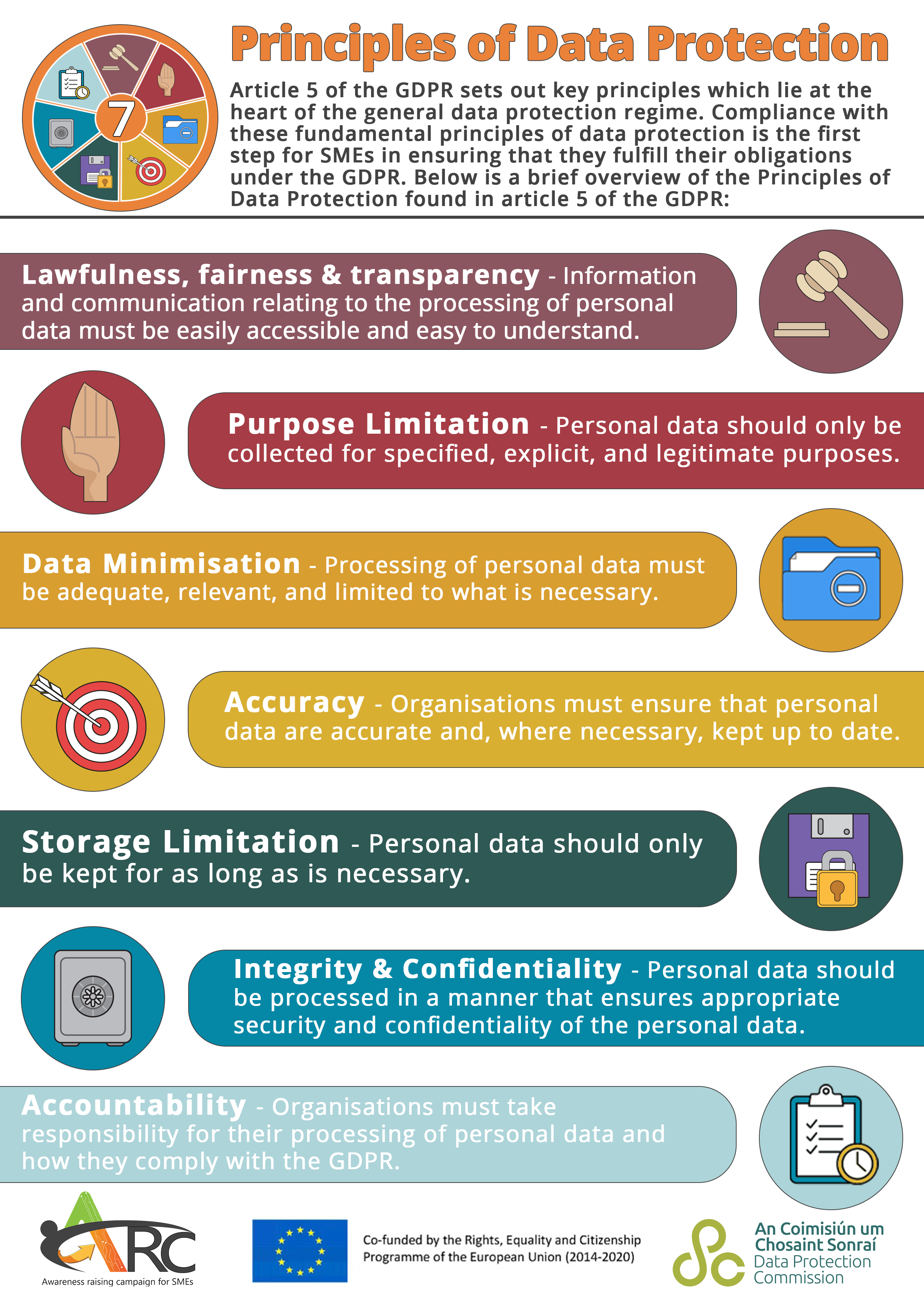Any processing of personal data should be lawful and fair. It should be transparent to individuals that personal data concerning them are collected, used, consulted, or otherwise processed and to what extent the personal data are or will be processed. The principle of transparency requires that any information and communication relating to the processing of those personal data be easily accessible and easy to understand, and that clear and plain language be used.
What are examples of measures that UCD/you need to take to deliver on the principle of lawfulness, fairness, and transparency?
- Provide individuals with Privacy Notices in advance of any data collection
- Update privacy notices regularly
- Identify one or more Legal Basis for the processing
- Put appropriate (opens in a new window)agreements and contracts in placewhen transferring personal data outside the EU
- As appropriate, put one of the following in place, when you share personal data with other organisations: (opens in a new window)controller-processor contract; joint controller agreements; data sharing agreements; so that each party is clear about their roles and responsibilities
